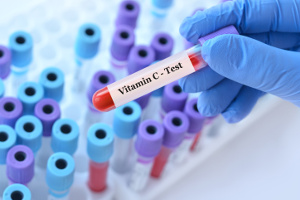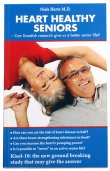Cholesterol lowering medicine may damage your muscle tissue
Even short-term con tact with cholesterol lowering drugs can cause potentially harmful side effects such as exercise intolerance and muscle pain, scientists report.
tact with cholesterol lowering drugs can cause potentially harmful side effects such as exercise intolerance and muscle pain, scientists report.
Statins, a widely used class of cholesterol-lowering drugs, are believed to cause exercise intolerance and damage muscle tissue. Now, a team of researchers from Columbia University – College of Physicians & Surgeons, have come one step closer to understanding why. Reporting in the June Archives of Neurology, the team of scientists describe how 34 patients on cholesterol-lowering medicine (atorvastatin) displayed significant reductions in their levels of coenzyme Q10, a vitamin-like substance which cells need in order to produce energy.
Inhibits vital energy catalyst
Blood levels of coenzyme Q10 were measured at baseline, after 14 days and again after one month in order to monitor the development. After 14 days of statin use, a significant coenzyme Q10 depletion was noted, and after one month levels were down by an alarming 50 per cent. Based on these findings the researchers concluded that even short-term contact with statins has a negative impact on the important energy catalyst.
Coenzyme Q10, just like cholesterol, gets synthesised in the liver, where the two natural substances share the same biochemical pathway. By blocking the cholesterol synthesis you inevitably do the same to the production of coenzyme Q10.
Muscle impairment
The team of scientists use their study to conclude that the comprehensive coenzyme Q10 reduction observed with statin use may explain commonly reported side effects like exercise intolerance, muscle pain and myoglobinuria (a sign of muscle degeneration).
As a way of compensating for the statin-induced coenzyme Q10 reduction, the research team advises patients to supplement with coenzyme Q10 along with their cholesterol-lowering medication.
Source:
Archives of Neurology, 2004;61:889-892
Search for more information...
- Created on .








 Most people are unaware of vitamin C’s key role in mental health and mood. According to a large population study that is published in Frontiers in Nutrition, having higher levels of vitamin C in the blood is linked to a lower risk of depression. The official dietary recommendations for vitamin C only focus on preventing the potentially lethal deficiency disease called scurvy, and things like stress, ageing, stimulant use, overweight, infections, and chronic illnesses can increase your need for the nutrient.
Most people are unaware of vitamin C’s key role in mental health and mood. According to a large population study that is published in Frontiers in Nutrition, having higher levels of vitamin C in the blood is linked to a lower risk of depression. The official dietary recommendations for vitamin C only focus on preventing the potentially lethal deficiency disease called scurvy, and things like stress, ageing, stimulant use, overweight, infections, and chronic illnesses can increase your need for the nutrient.


 "After about one week of taking the Q10 supplement I could feel a huge difference," says 23-year old Alan Piccini, who has been suffering from extreme fatigue and muscle aches ever since he was a child.
"After about one week of taking the Q10 supplement I could feel a huge difference," says 23-year old Alan Piccini, who has been suffering from extreme fatigue and muscle aches ever since he was a child. “Taking capsules with co-enzyme Q10 has freed me of the severe side effects of my cholesterol lowering medicine,” Mrs Franken explains.
“Taking capsules with co-enzyme Q10 has freed me of the severe side effects of my cholesterol lowering medicine,” Mrs Franken explains.